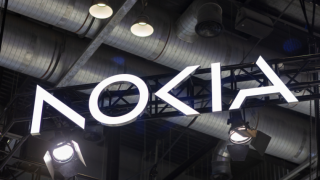Speaking during a keynote at the Ultra-Broadband Forum (UBBF) 2024, the Huawei executive suggested that AI will empower new services, aggregate high-quality content, and even support an AI-powered home application ecosystem, presenting a “monumental opportunity for our industry.”
Subscribe today for free
According to Chen, the ultra-broadband industry is advancing at an unprecedented pace, with more than 300 million gigabit broadband FTTH users worldwide — much shorter time than what megabit broadband user development took to reach the same number. He predicted that by 2027, more than 40% of fixed broadband users will be enjoying gigabit speeds.
The Huawei executive said during the keynote that the rapid progress in connectivity coincides with the explosive growth of AI.
Chen opined that the ultra-broadband and AI industries are “mutually reinforcing” with AI able to support applications like smart home assistants, or what he called “Home AI Hubs.”
“I recently installed a ‘Home AI Hub’ provided by a Chinese Operator in my home. By connecting it to my TV in the living room, I've been able to enjoy many new services,” Chen said. “For example, I can now do AI-interactive fitness exercises with my wife, receiving real-time feedback and corrections to my movements. I also played motion-sensing games with my kids and had video chats with my parents.”
In Chen’s view, the future will see AI-powered home services where operators can, for example, transform watching TV into what he described as “using TV,” with providers able to continuously add new services to the experience.
To monetise applications like Home AI Hubs, Chen outlined three key steps: upgrading existing services to enhance user experiences, developing new AI-driven services, and fully integrating AI into home services to create cohesive ecosystems. He believes implementing these steps will significantly enhance service offerings and drive revenue generation.
One related application Chen spoke of during his keynote that has generated business value off the back of comprehensive upgrades is cloud gaming.
He referenced Black Myth: Wukong, the video game developed by Chinese studio Game Science, which has been one of the best-selling games of the year, which sold 20 million copies in its first month.
Chen explained that Chinese service providers recognised an opportunity with the game and offered a cloud gaming option, allowing users to access a high-quality experience without the upfront cost of purchasing an expensive GPU for $1600. Instead, users can pay $30 per month or $0.50 per hour.
To cloud game titles like Black Myth: Wukong or deploy other high-intensity applications like live commerce, Chen stressed the need for a “Premium Horizontal and Premium Vertical” network to support these new services.
“Achieving 1 ms latency and 400G/800G connections between data centres, along with low-latency access to data centres, is essential for meeting evolving demands,” he stated, underscoring the necessity for network restructuring.
As the telecom industry looks to embrace AI, Chen said the key to seizing the business potential of the technology lies in what he described as the FOUR NEW: “New Hub, New Services, New Experience, and New Operation.”
“To turn AI opportunities into tangible business growth, we need determination and a commitment to innovation,” Chen said. “Huawei is ready to work with carriers and industry partners to unlock the transformative power of AI in telecommunications.”
RELATED STORIES
UBBF 2024: Huawei’s Bob Chen highlights AI-focused growth in F5.5G all-optical networks
Huawei’s David Wang: UBB advanced paves the way to all intelligence
MBBF 2024: Networks must transform to support AI era, says Huawei exec






